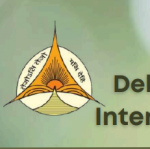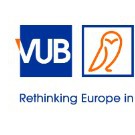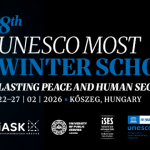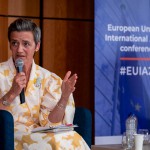ICYMI: European Union in International Affairs Conference 2021
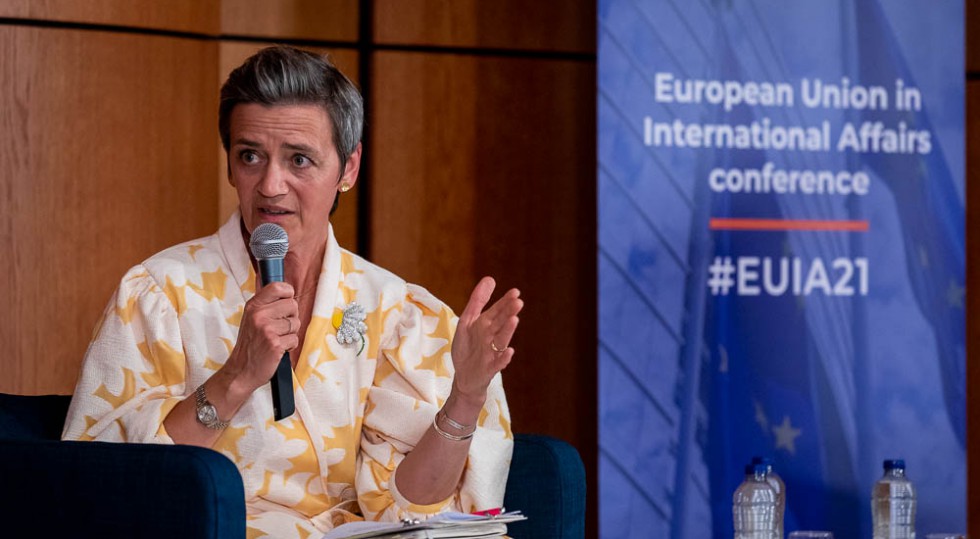
Photo credit: EUIA 2021
The EUIA Conference is a platform for academics and policymakers to debate and discuss the role of the European Union in the dynamic realm of international affairs. After its postponement in 2020 due to the Covid-19 pandemic, the seventh edition of the EUIA Conference was held virtually from 26th – 28th May 2021 and was themed, Assessing the EU’s Capacity to Act.
The EUIA Conference is jointly organised by the Brussels School of Governance at the Vrije Universiteit Brussel (BSoG-VUB), the Institut d’Études Européennes at the Université Libre de Bruxelles (IEE-ULB), the United Nations University Institute on Comparative Regional Integration Studies (UNU-CRIS), Egmont – the Royal Institute for International Relations and the Politics and Internationals Studies (PAIS) of the University of Warwick. It is supported by the FWO/Research Foundation – Flanders as well as the Fonds de la Recherche Scientifique (FNRS).
#EUIA2021 featured a keynote address by Margrethe Vestager, Executive Vice-President of the European Commission, highlighting the role of sovereignty, democracy and law in defining the course of EU policymaking. The conference also included several high-level policy link panels and an editors' debate of leading academic journals in European studies. Additionally, it comprised more than 60 academic panels during which scholars presented their state-of-the-art research on EU foreign policymaking.
UNU-CRIS was well represented at EUIA 2021 as an institutional partner organizing and contributing to multiple sessions. The first day of the EUIA Conference featured the high-level policy link panel, EU and UN: Shared Challenges, Same Vision? organised by UNU-CRIS. Chaired by Director Ad Interim, Philippe de Lombaerde, the session brought together representatives of the UN, European Commission, EU member states, and academia to explore the multifaceted relationship between the United Nations and EU. In doing so, it answered key questions on multilateralism and on-ground coordination at the global and country levels while highlighting views on the future strategies and perspectives for EU-UN relations.
The inaugural day also included contributions by Luk Van Langenhove, Ivy Yang and Zonglyu MA in the academic panel, Positioning Theory in European Studies.

The high-level policy link panel, EU and UN: Shared Challenges, Same Vision? in progress. Photo credit: EUIA 2021
Day two comprised the UNU-CRIS academic panel, Understanding Return Governance, Return Migration and Reintegration Processes: Insights from African Countries. Chaired by Ine Lietaert, the session included presentations by Rossella Marino (Making sense of sustainable reintegration in the global migration governance), Els Bekaert, Killian Foubert, Ilse Ruyssen (Why return back home: An empirical analysis of the driving forces behind worldwide return migration aspirations), Ashenafi Tirfie Tizazu (The Meaning of Return and Reintegration in the Context of Rural Ethiopia) and Presca Wanki (Return in context: family and community expectations towards Cameroonian returnees).
The academic session, The EU, Geopolitics and the Global Energy Transition, was chaired by Thijs Van de Graaf; while Frank Mattheis was the discussant and presenter for Disparities in the European Union’s Support to Regionalism in Africa, that also included a presentation by Elisa Lopez Lucia.
Claire Dupont, Sebastian Oberthur and Ingmar von Homeyer participated in the panel, Evolving geopolitics: the EU as a global climate actor. Jamal Shahin, Diana Potjomkina and Elke Verhaghe contributed to the session, EU’s Trade Policy Legitimacy in Question.
Sarah Delputte chaired and presented for the academic session, Caught between populism and opportunism? The evolving role and place of EU development policy in the Union's external action. The session, The Role of Science Diplomacy in the European External Policies, was chaired by Luk van Langenhove.

Photo credit: EUIA 2021
The third day of the EUIA Conference comprised multiple academic sessions. Claire Dupont presented during the session, The Consequences of Brexit. Reforming World Order: Why the World is not Ready for a Dialogue of Civilisations included contributions by Richard Higgott and Luk Van Langenhove. EU trade policy: Interest-based, ideational and international drivers under changing constraints, opportunities, and capabilities for action, was chaired by Ferdi De Ville. Jamal Shahin chaired and presented during the session, The EU's role in building digital policies: a cross-sectoral analysis. This panel also included insights by Trisha Meyer.
Sarah Delputte chaired the panel EU Development Policy - Understanding Current Challenges, that comprised a presentation by Andrew Bradley.
EU trade policy: The politicisation of EU trade policy under changing constraints, opportunities, and capabilities for action, featured Ferdi De Ville as the chair and Sven Van Kerckhoven as a presenter.

Image credit: EUIA 2021
Fabienne Bossuyt chaired the panel, Principled Pragmatism in Practice: The EU’s Policy Towards Russia after Crimea. This session included the presentation, EU Cultural Relations with Russia After Crimea: A Crisis or a Turning Point, by Domenico Valenza.
The Dynamics around China’s Belt and Road Initiative was chaired by Luis Simon and featured a presentation by Duncan Freeman on The EU, Asia and Connectivity: Does the EU have the Capacity to Export the European Way as an Alternative Way to the BRI.
Sebastian Oberthur was the discussant for EU in International Climate Change Politics while Chinendu Obi shared insights during the session Salience and Politicisation of Migration Issues.
More information about the conference can be found on the EUIA website. Make sure to check out the EUIA podcasts too.
Click here to explore the previous editions of the conference.

